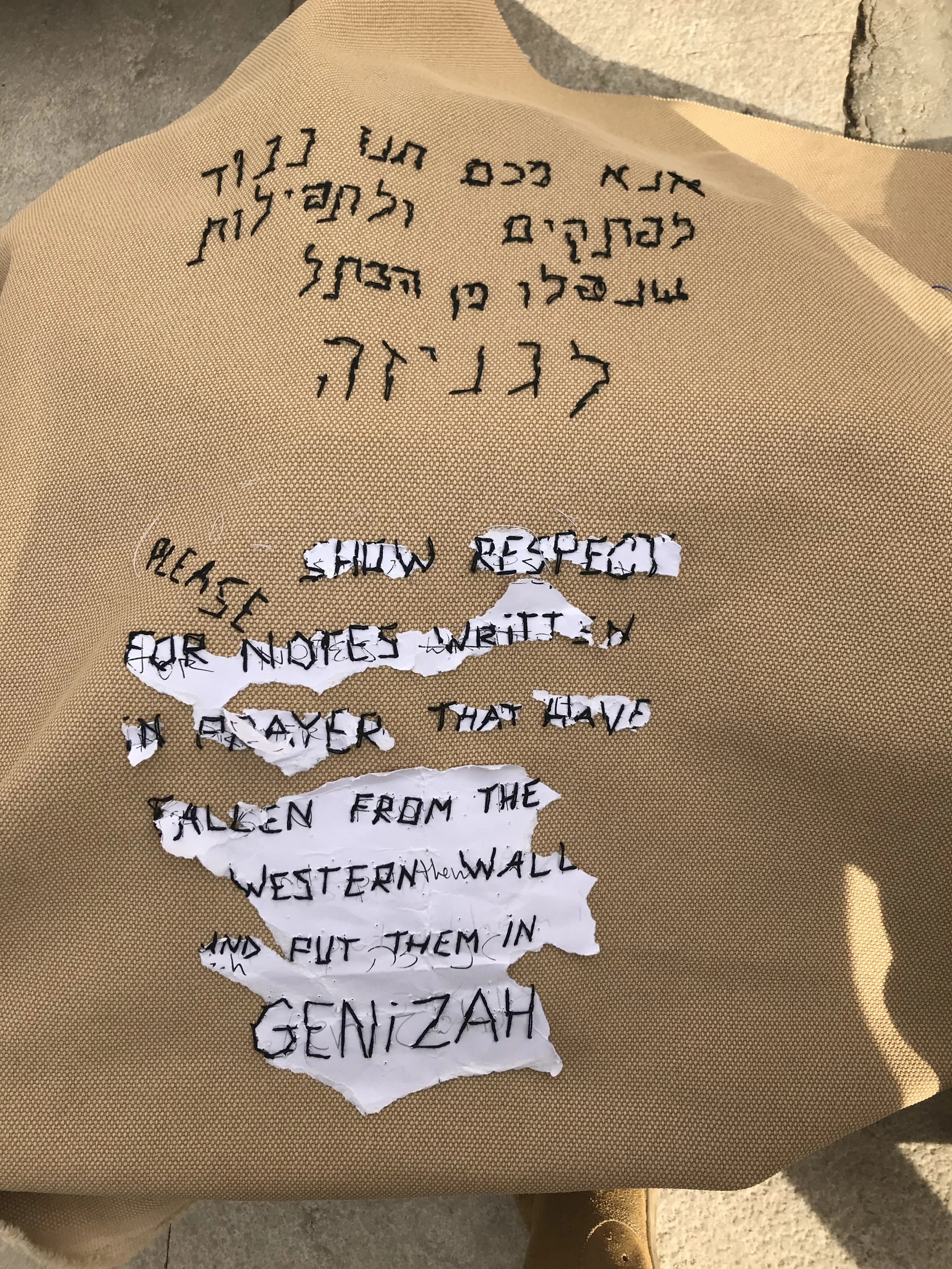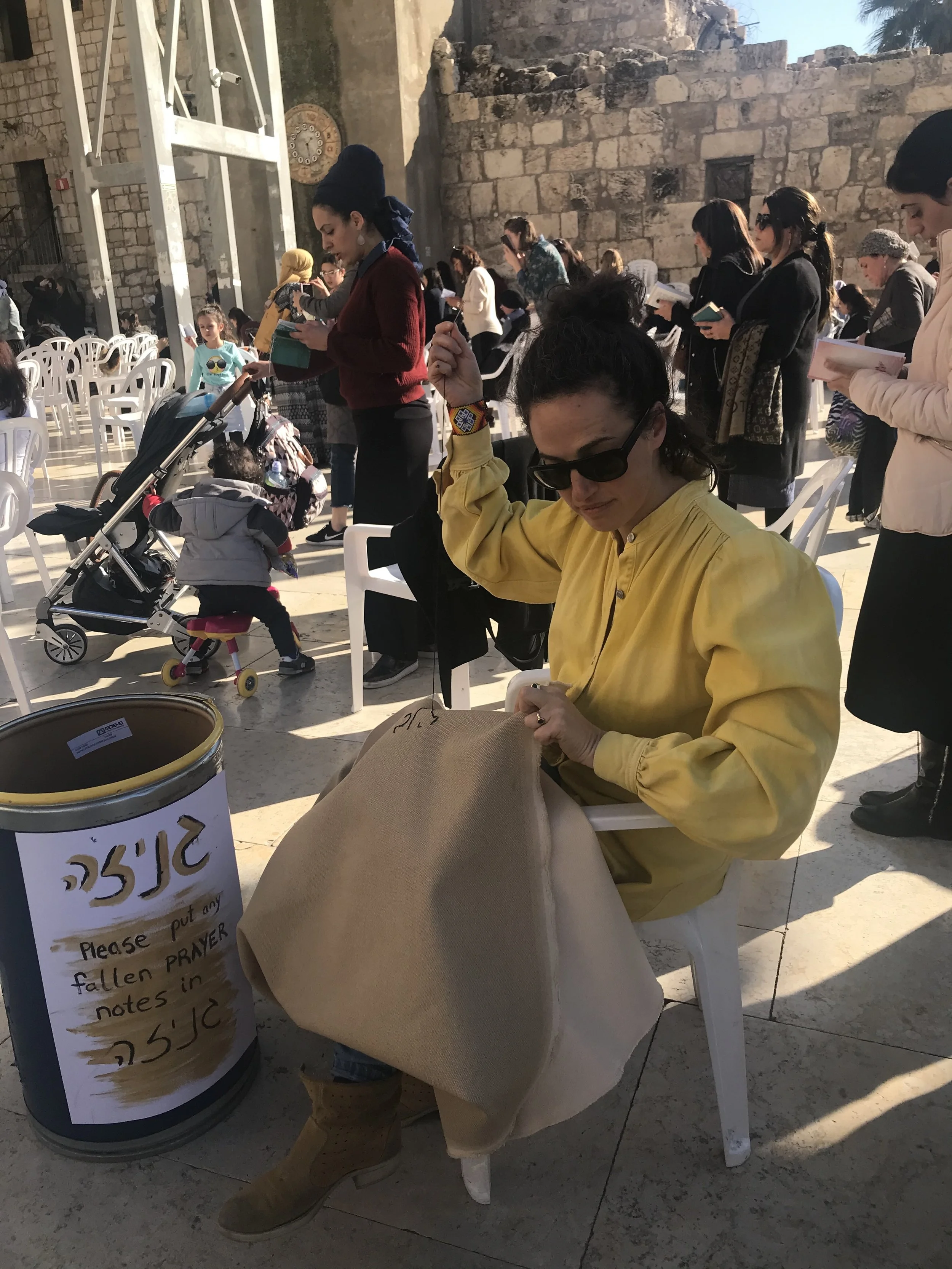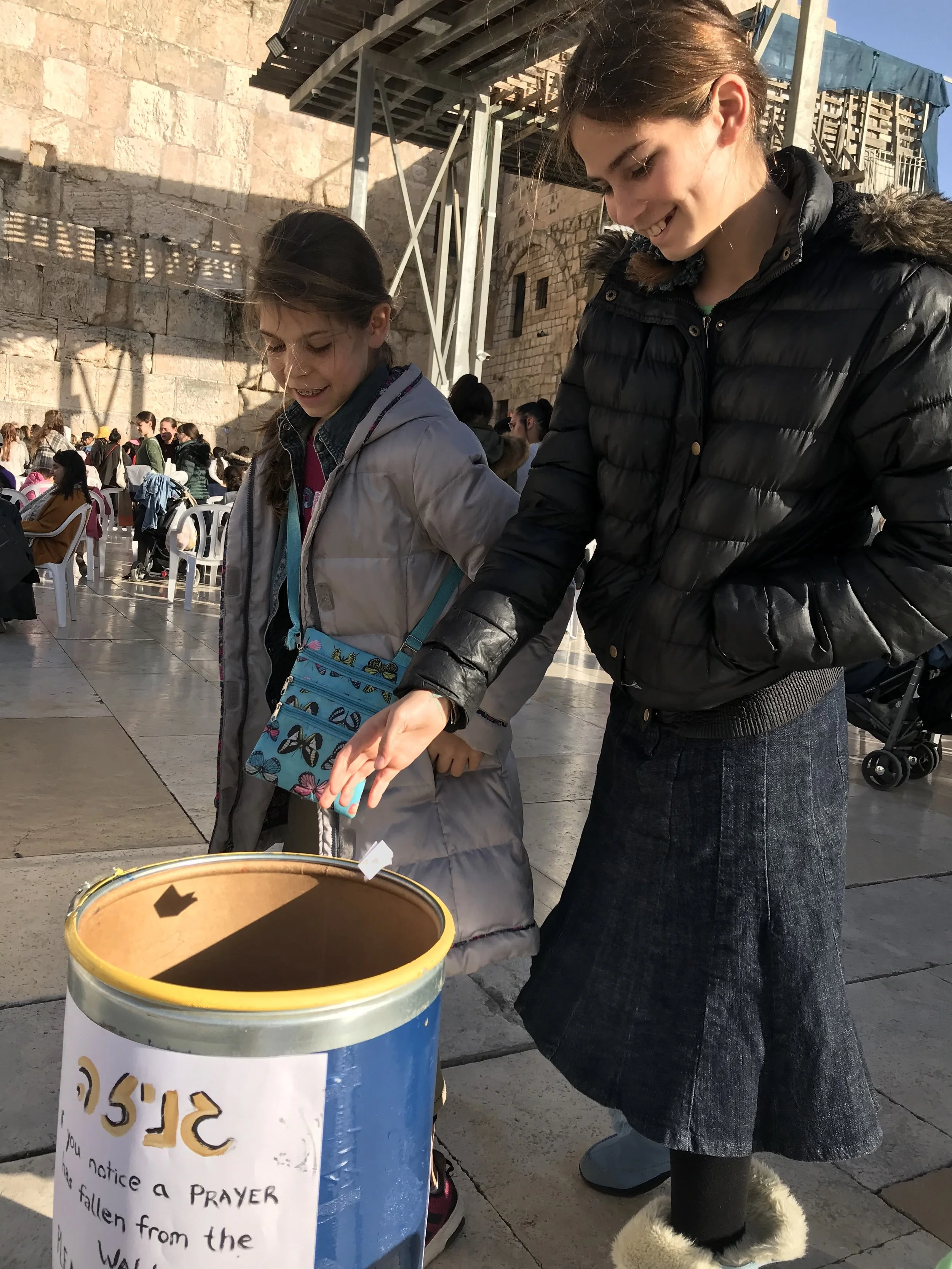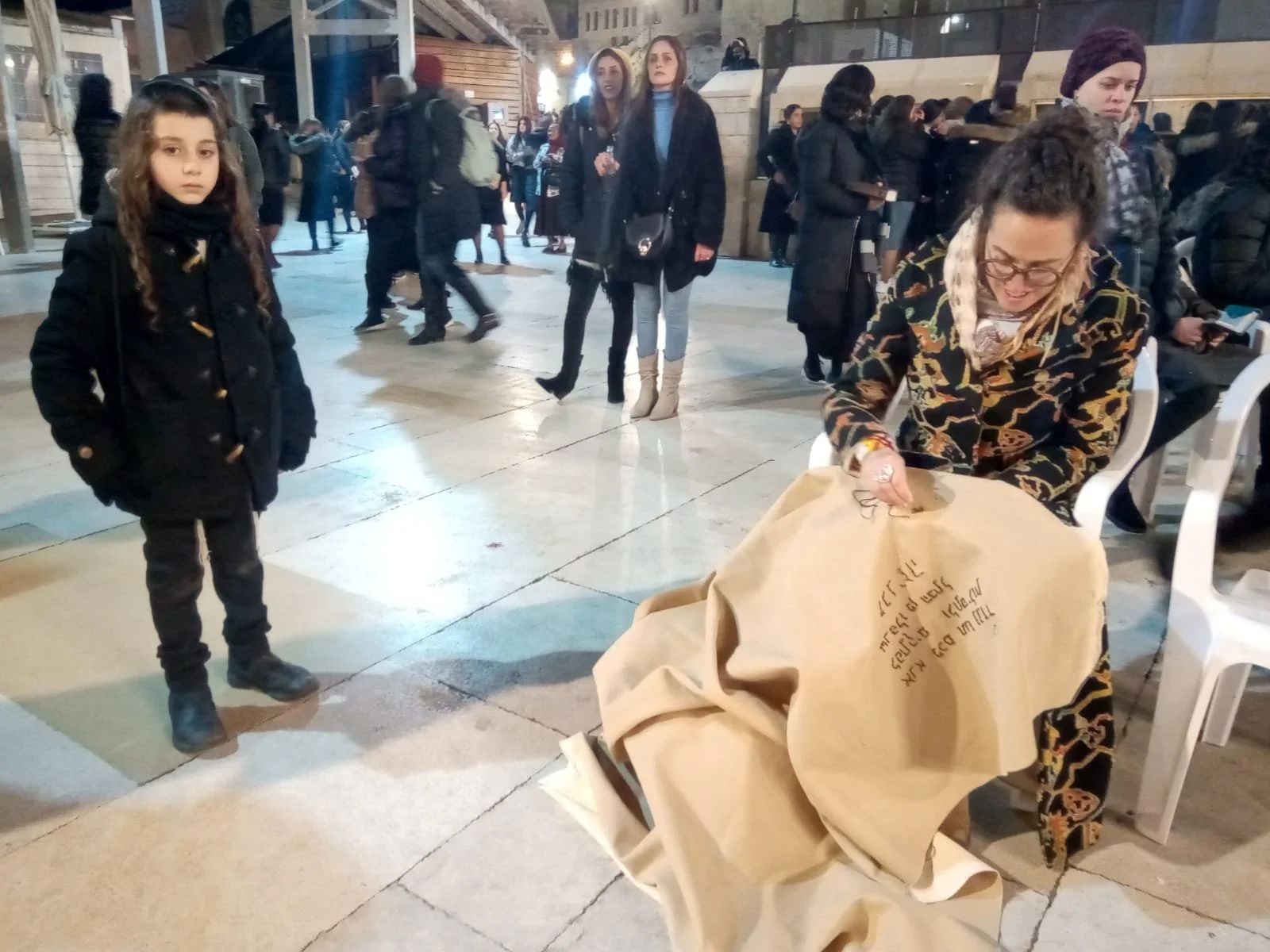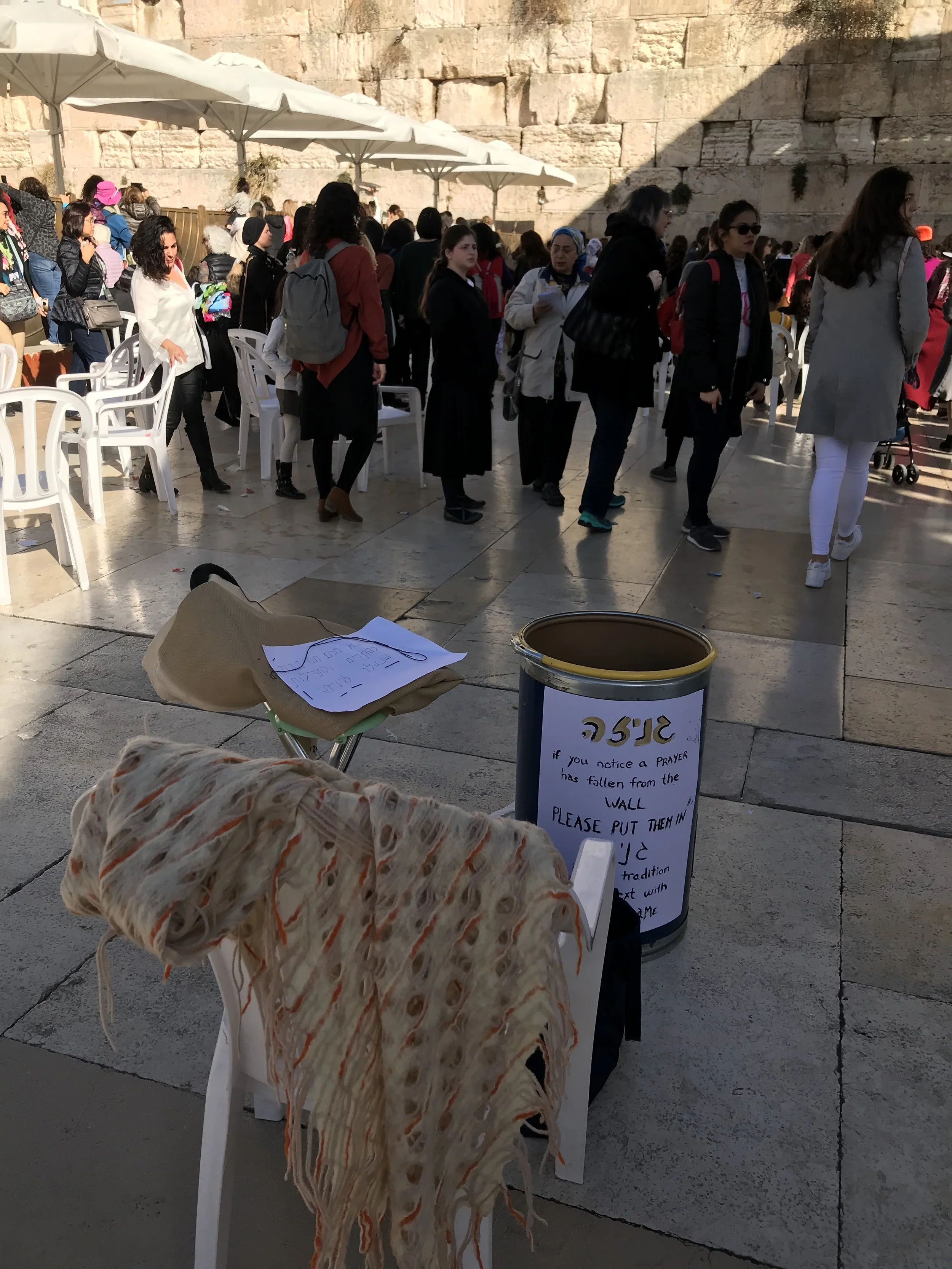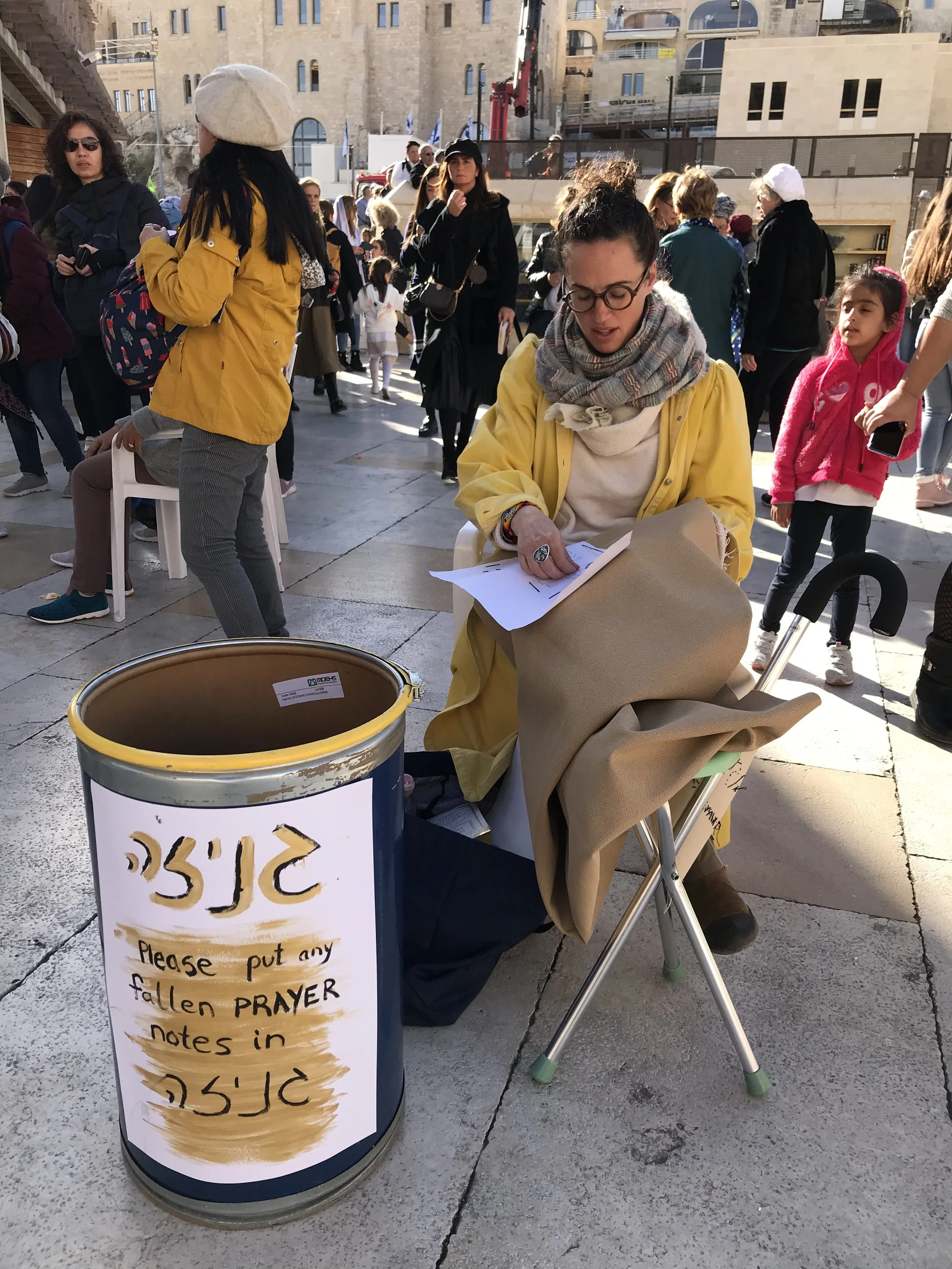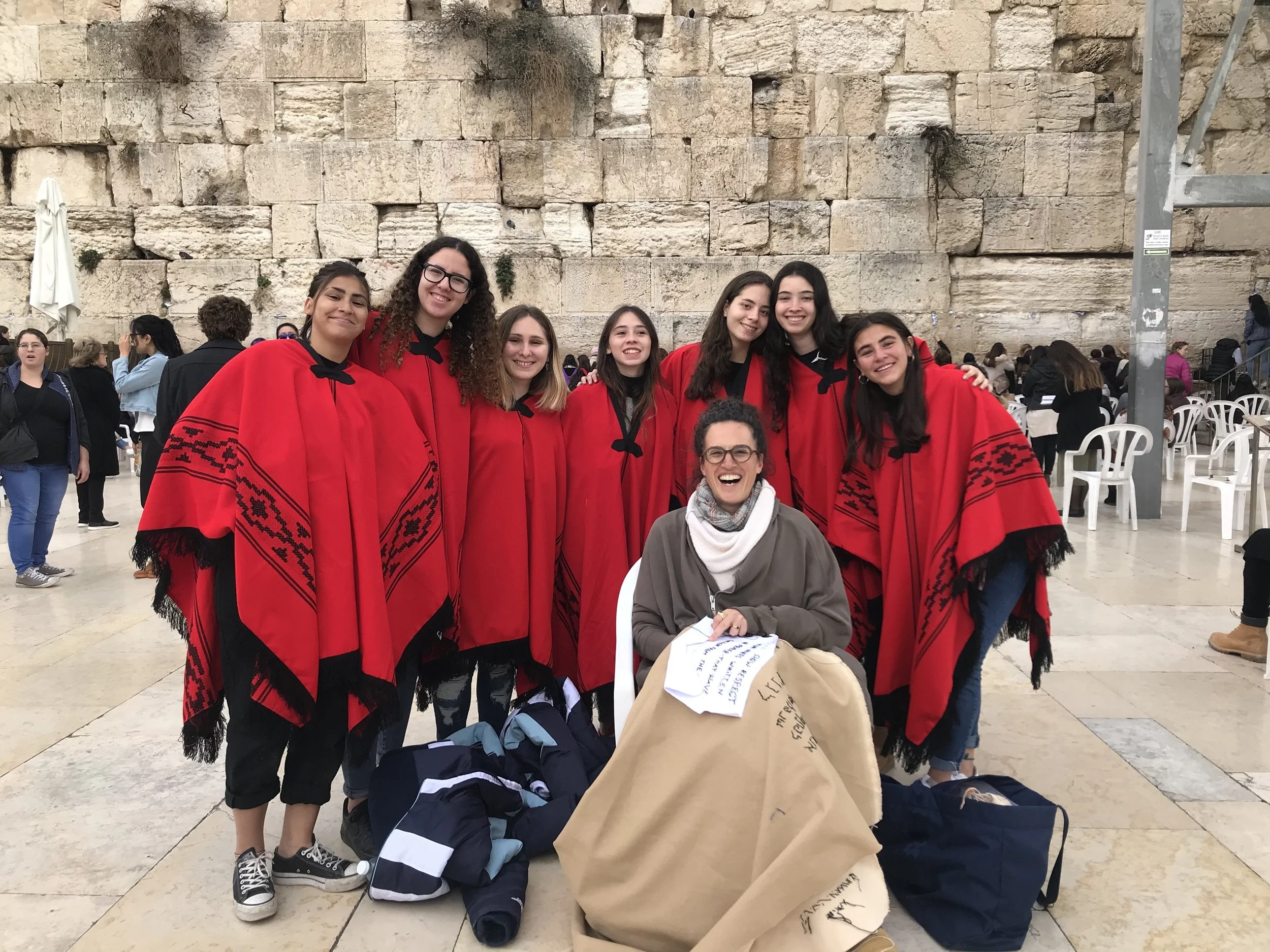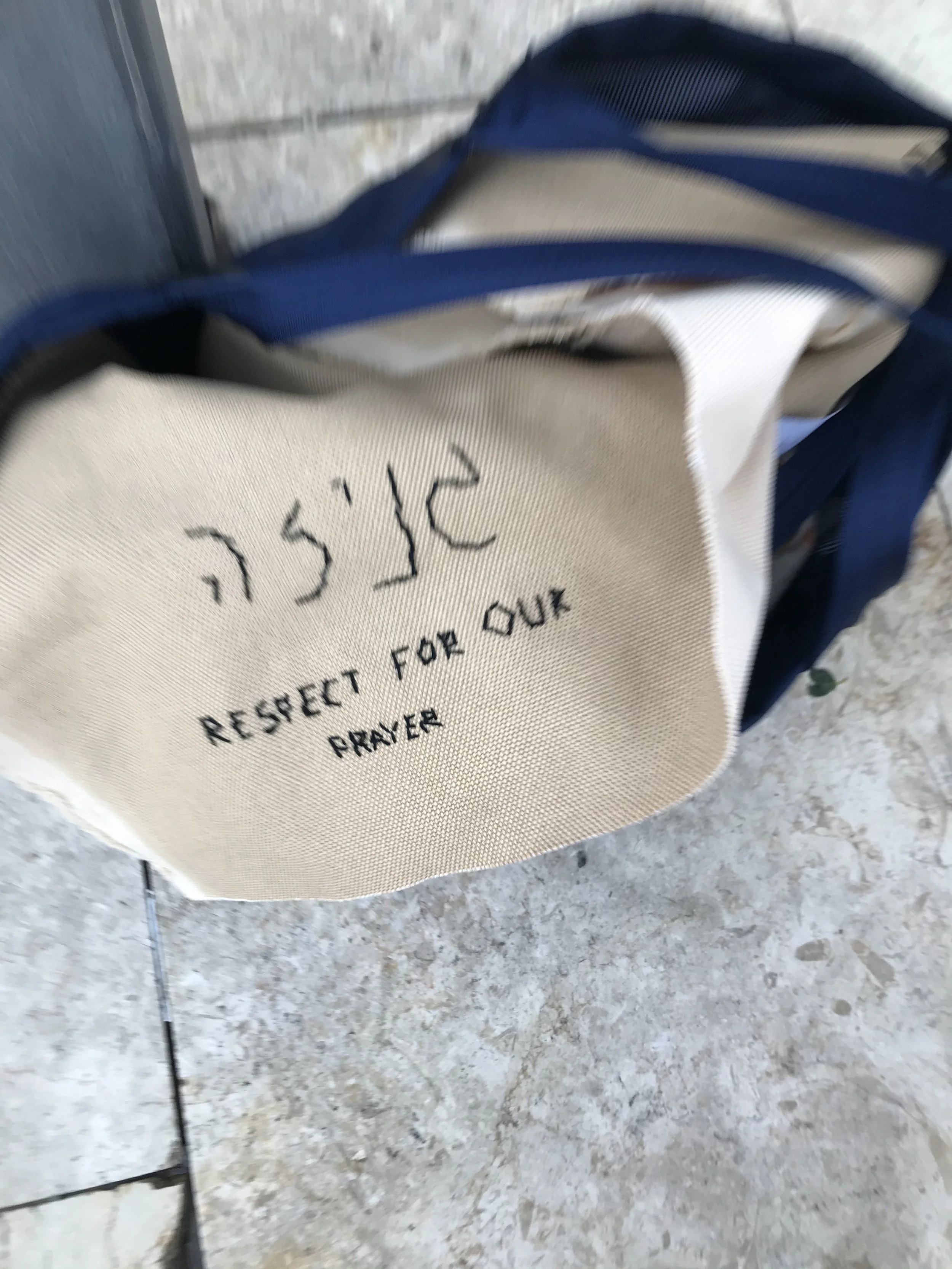The P’takim Project
A Spiritual and Artistic Response to the Notes at the Western Wall
by Elana Langer (חוה)
The P’takim Project emerged from the time Langer spent at the Western Wall in Jerusalem—drawn to the powerful atmosphere of prayer and the convergence of people from all walks of life. Amid the intensity and beauty of this sacred space, she became increasingly aware of a quiet, often overlooked tension: the physical overflow of written prayers—ptakim—scattered on the ground, trampled underfoot, or swept away without clear reverence.
Moved by this recurring scene, she began to ask: What does it mean to honor not only our own prayers, but the prayers of others?
How can we respond—visually, functionally, and spiritually—to something so intimate, yet so public?
The P’takim Project proposes the placement of aesthetically meaningful vessels near the Wall—where fallen notes can be gently gathered and placed with dignity. These vessels are not trash bins; they are sacred containers, designed to receive what has been offered with intention and now needs a resting place of care. The notes collected will be handled according to the Jewish tradition of g’neezah, which treats all sacred writings, including personal prayers, as holy text—buried rather than discarded.
During the course of the project’s first public installation—held over the eight days of Chanukah—she hand-stitched a ceremonial cover for the inaugural g’neezah box. This slow, meditative act became a tactile expression of the project’s core values: reverence, restoration, and respect for what is often unseen.
The P’takim Project is more than a practical solution—it is a living act of Derech Eretz. It is a spiritual and artistic intervention that calls us to notice, to honor, and to care. In lifting these anonymous, fallen prayers, we remind ourselves to lift each other. In giving them a resting place of dignity, we affirm the sanctity of every voice that dares to hope.

